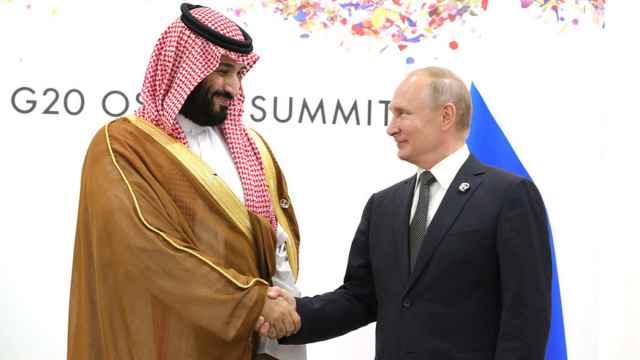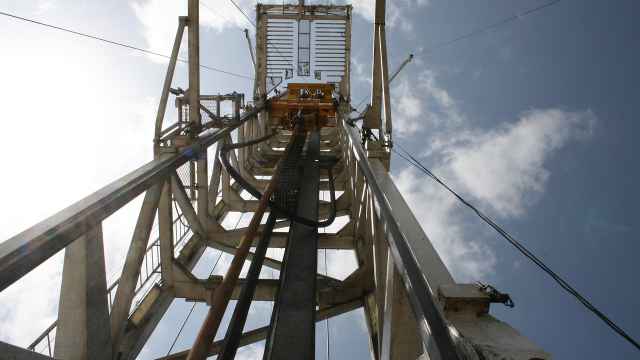OPEC could agree on deeper oil supply cuts this week, with or without Russia's support, to halt the slide in crude prices triggered by the global spread of the coronavirus, said two sources familiar with the talks.
Moscow is resisting further output curbs, arguing that reduced production by the Saudi Arabia-led Organization of the Petroleum Exporting Countries (OPEC) and its allies, a group known as OPEC+, will not necessarily revive oil demand, the sources said.
Russian President Vladimir Putin on Sunday said that current prices are acceptable for his country's budget and that Russia - a key member of OPEC+ - has sufficient resources to contend with any deterioration in the global economy.
"Saudi Arabia wants to hold prices from falling, but Russia is still not agreeing. So the only way might be for OPEC to cut alone, which will not send a good signal to the market," one of the sources said.
"There should be a cut, there is no other option," another source said, adding that another option might be for OPEC to delay a decision until low oil prices force Moscow to come on board.
Markets Rattled
Global oil and stock markets have been rattled by the spread of the coronavirus, which has infected 82,000-plus people globally, with more than 2,700 deaths in China and 57 fatalities in 46 other nations.
Brent crude fell to $49.67 a barrel on Friday, having lost more than $15 since January.
OPEC has been discussing cutting oil production by a further 1 million barrels per day (bpd), among other options, as it seeks to stabilize declining oil prices, OPEC and industry sources said on Friday.
That is more than an initially proposed cut of 600,000 bpd.
The existing OPEC+ pact entails output cuts of 1.7 million bpd under a deal that runs to the end of March.
Saudi Arabia has been holding its output to 400,000 bpd beneath its quota, bringing the total effective OPEC+ cuts to 2.1 million bpd.
OPEC and allies are scheduled to meet in Vienna over March 5-6 to seek agreement on production policy.
But cutting output without Russia could effectively mean an end to the cooperation between OPEC and Moscow, an outcome that Saudi Arabia and other key OPEC members would not want.
Moscow has a history of agreeing to OPEC+ actions only at the last minute after showing initial reluctance.
Saudi Arabia’s Energy Minister Prince Abdulaziz bin Salman last month described as "nonsense" a media report that Riyadh is considering a break from the OPEC+ alliance with Russia.
He also expressed confidence that OPEC+ would respond responsibly to the spread of the coronavirus and that Saudi Arabia and Russia would remain engaged on oil policy.
The prince has been advocating a swift oil supply cut since the initial outbreak of the virus in January, aware that delays have previously led to costly price collapses, sources familiar with the kingdom's thinking have told Reuters.
Saudi Arabia needs oil prices of about $80 a barrel to balance its state budget while Russia can cope with prices as low as $42.
A Message from The Moscow Times:
Dear readers,
We are facing unprecedented challenges. Russia's Prosecutor General's Office has designated The Moscow Times as an "undesirable" organization, criminalizing our work and putting our staff at risk of prosecution. This follows our earlier unjust labeling as a "foreign agent."
These actions are direct attempts to silence independent journalism in Russia. The authorities claim our work "discredits the decisions of the Russian leadership." We see things differently: we strive to provide accurate, unbiased reporting on Russia.
We, the journalists of The Moscow Times, refuse to be silenced. But to continue our work, we need your help.
Your support, no matter how small, makes a world of difference. If you can, please support us monthly starting from just $2. It's quick to set up, and every contribution makes a significant impact.
By supporting The Moscow Times, you're defending open, independent journalism in the face of repression. Thank you for standing with us.
Remind me later.






